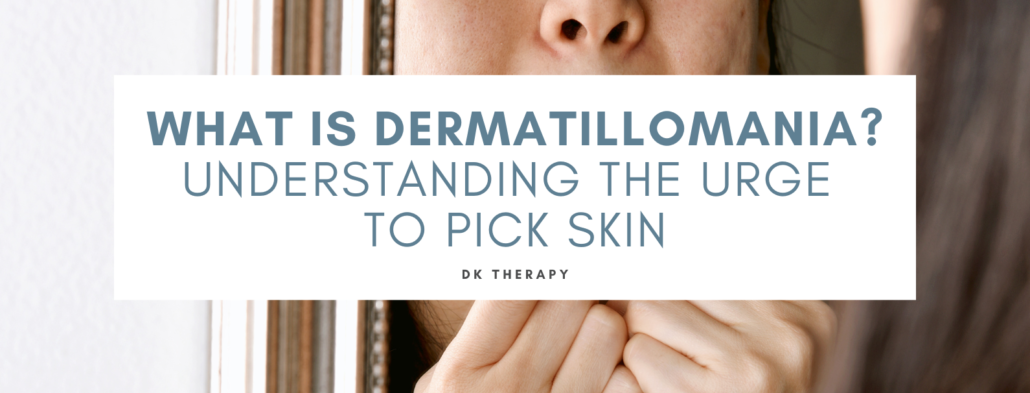
Dermatillomania, also known as skin-picking disorder, is a condition characterized by an uncontrollable urge to pick at one’s skin. Plenty of people occasionally pick at scabs or minor skin imperfections, but individuals with dermatillomania find it hard to stop even if the behavior leads to injury.
Understanding this disorder is important in order to recognize its impact on mental and physical health.
 Recognizing the Signs of Dermatillomania
Recognizing the Signs of Dermatillomania
Dermatillomania can manifest in several ways, and the severity of the condition can vary from person to person. Some of the most common behaviors that come with this disorder include:
- Picking at healthy skin: People with dermatillomania may pick at normal skin in addition to skin that’s already damaged.
- Targeting specific areas: Some individuals focus on particular parts of the body, such as the face, arms, or legs.
- Use of tools: Fingers are often used, but some may use tweezers or other sharp objects to intensify the picking.
- Frequent episodes: The behavior occurs regularly, often several times a day or for extended periods.
People with dermatillomania may feel embarrassed or ashamed of their behavior. As a result, they may attempt to hide the physical consequences, such as covering scars or wearing long sleeves.
The Psychological Roots of Skin-Picking Disorder
Dermatillomania is considered a body-focused repetitive behavior (BFRB), not unlike hair-pulling (trichotillomania) or nail-biting. It is often connected to underlying emotional or psychological issues, such as:
- Anxiety: Many individuals pick at their skin in response to feelings of anxiety.
- Perfectionism: Some individuals experience a need to “fix” perceived imperfections on their skin.
- Obsessive-compulsive tendencies: Dermatillomania shares similarities with obsessive-compulsive disorder (OCD).
- Emotional regulation difficulties: Skin-picking may serve as a form of self-soothing for individuals who struggle to regulate their emotions.
Understanding these factors can be beneficial when it comes to evaluating the issue and ensuring the individual receives effective treatment. Remember, this condition is often not a matter of willpower but something rooted deeply in one’s emotional or neurological patterns.
Physical and Emotional Consequences
Dermatillomania can cause significant physical harm, including open wounds, scars, and infections. Chronic picking exposes the body to bacteria as well, which increases the risk of needing medical attention to combat the development of illness.
Emotionally, dermatillomania can create feelings of shame, guilt, and isolation. The cycle of picking, followed by regret and attempts to stop, can create a constant battle for control. Many individuals experience anxiety or depression around the condition, which can be made worse by the social stigma and misunderstanding of the disorder.
Treatment Options for Dermatillomania
Effective treatment for dermatillomania involves addressing both the psychological and physical aspects of the condition. Some common approaches include:
- Cognitive Behavioral Therapy (CBT): CBT helps individuals identify the triggers for their picking behavior, then teaches coping strategies to manage the urges.
- Medication: In some cases, medications like SSRIs may be prescribed to help reduce obsessive-compulsive tendencies.
- Mindfulness techniques: Learning how to manage stress and anxiety through relaxation practices can reduce emotional triggers.
- Barrier methods: For some, covering the skin with gloves or using fidget tools can help interrupt the picking cycle.
Dermatillomania is more than just a bad habit. It’s a mental health condition that requires understanding, compassion, and the Right form of treatment. While the urge to pick at the skin can be overwhelming, it’s important to know that help is available. With the right support, individuals with dermatillomania can learn to manage their behavior, improve their emotional well-being, and heal both physically and mentally.
If you’re struggling and you’d like to discover how therapy can benefit you, reach out to DK Therapy.




